Companies & Organizations
Services available on-site and remote
Dr. Adreon provides consultation and training to help companies build a more collegial and productive workplace that plays to individual strengths while addressing differences.
We are all wired differently, and therefore we see and experience the world differently.
While they may struggle with social interactions, people with autism also display symptoms that make them uniquely qualified for technical and creative roles. The same traits that can be a hindrance in some areas of life, can be invaluable in many careers, positively impacting a company’s bottom line. Hyper focus on a particular field or area of interest and an obsessive interest in details are both characteristics many companies need.
Corporations and organizations looking to utilize the skills of neurologically diverse talent must find a way to build effective teams that include individuals who may have deficits in social and communications skills.
For companies looking to develop a more effective, engaged, innovative and neurologically diverse work environment, Dr. Adreon provides effective strategies to:
- Assist corporate leadership in educating themselves and employees on best practices for working with neurodivergent individuals
- Train company leadership and employees in effective communication with employees with autism
- Train people with high-functioning autism spectrum disorder to work more effectively with neurotypical colleagues (including social skills and conflict resolution)
Undiagnosed Employees with Symptoms of High-Functioning Autism
There are many examples of people in technical, scientific and artistic fields who display symptoms of autism, but were never diagnosed. These individuals can be found throughout history. They have been labeled eccentrics and nerds. The world’s best-known person with autism, Temple Grandin, Ph.D., autism advocate, businesswoman and professor of animal science at Colorado State University, has spoken and written about the contributions of people with autism at technical enclaves from Silicon Valley to NASA to the arts and show business. However, these individuals are in the minority, and their struggles in the workplace, as in other areas of their lives, can be great.
Dr. Adreon’s training and interventions for all employees can benefit companies looking to create a more functional, effective and productive work environment. Rather than sideline employees with excellent skills and productivity who may be lacking in social skills, corporations can opt for training and a better return on investment.
Employees with autism often lack social skills necessary for career success including the ability to perform small talk, network and work as part of a team. Do any of your employees or colleagues display these symptoms? Are these challenges interfering with their ability to be effective or achieve advancement?
- Poor social skills
- Self-centered
- Insensitive to feeling of others
- Rude and inconsiderate
- Over-react to things others consider “minor”
- Difficulty developing & maintaining friendships
- Difficulty understanding & using body language (i.e. eye gaze, gestures, and facial expression)
- Difficulty getting along with others
- Frequently have communication problems with others/misunderstandings
- Difficulty putting themselves in another’s shoes or seeing things through another lens
- Having trouble making “small talk”
- Underachiever, given their intelligence and knowledge
- Strong preference for sameness
- Difficulty staying organized
- Trouble prioritizing tasks and completing them in a timely manner
- Poor problem-solving skills
- Difficulty being motivated to complete tasks
- Poor coping strategies
- Tendency to focus on details
- Sensory issues (personal space, sounds/noises, movement, tactile, taste, smell, light, temperature, balance)

Contact
View the information form ▸
Tel: +1 (929) 249-1960
info@SpectrumLifeStrategies.com
Miami, FL USA
